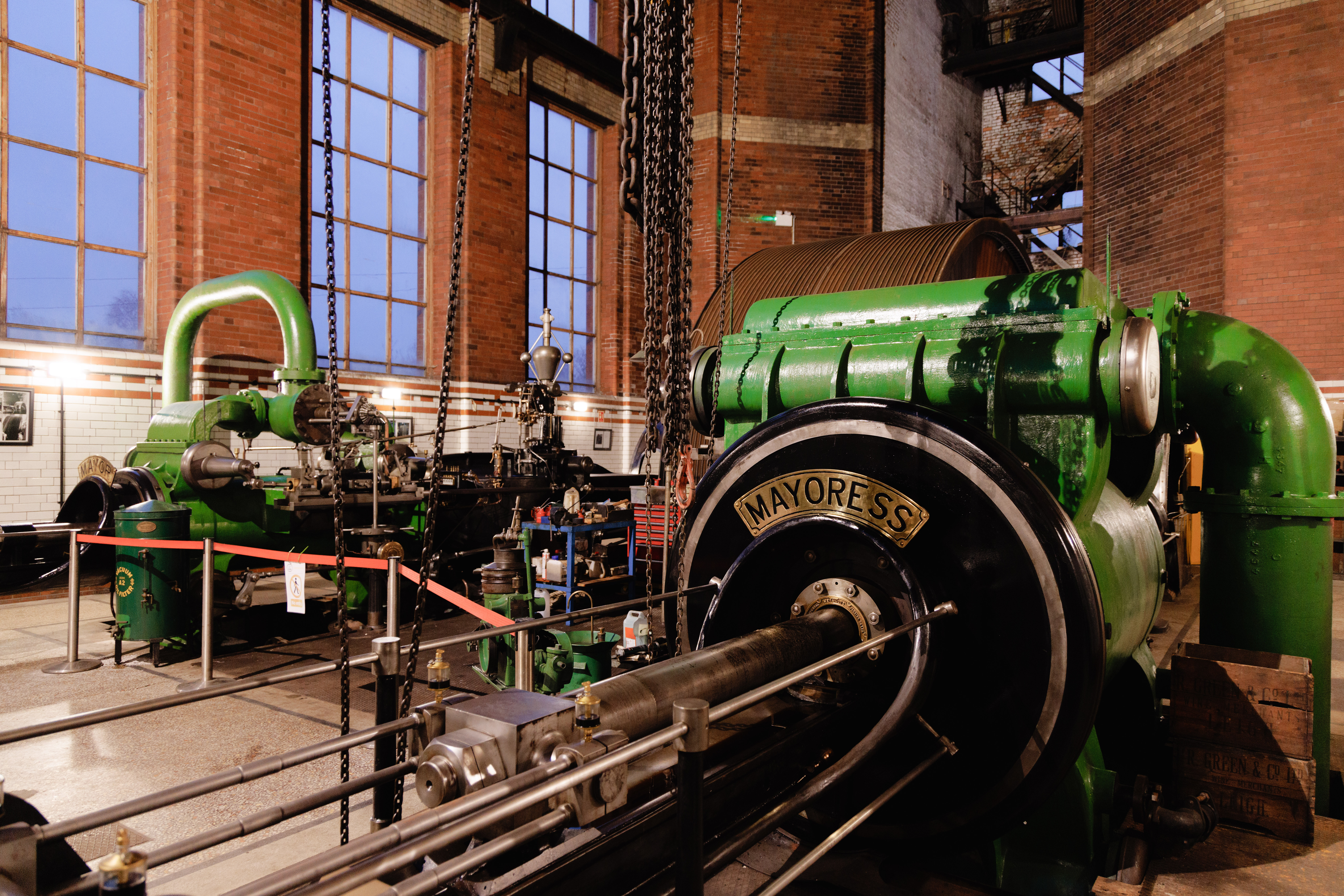
“This was a walk in the park compared to grant applications”
By refinancing an existing loan, Leigh Building Preservation Trust has reduced its monthly costs by £6,000. Find out how.
Leigh Building Preservation Trust had to take on a loan after new fire safety regulations forced the closure of Spinners Mill. However, the loan repayments were proving extremely difficult for the charity to maintain, so it decided to refinance. Here, Paul Costello, Executive Trustee and Director of Leigh Building Preservation Trust, explains why the new loan has proven to be a “godsend”.
Can you tell us a little bit about Leigh Building Preservation Trust?
We look after the Grade II* listed Spinners Mill. The Trust was formed around 2015 because the company that was looking after the mill were struggling to maintain it on their own. We started by restoring the engine house, which meant the company could stay in Leigh and keep employing people. However, we soon realised that you can’t just save a building, you need to make sure you can keep it going. To do that, we needed to convert the different floors to provide a heritage centre and small units for local businesses and community organisations. We slowly converted four floors, using grants from the National Lottery, Heritage Lottery, Historic England and so on.
And why did you need a loan from Charity Bank?
We had a fire safety prohibition notice served on us during COVID, due to new safety regulations, which meant that we had to shut down. We had no real income coming in other than grants at the time, so we got a loan from Stanley Black and Decker (now Securitas) to do the required work, including a new sprinkler system, fire safety corridors and so on.
The loan was costing us around £7,000 a month, which is a hell of a lot of money to find when you’re a charity.
So, we refinanced with Charity Bank. They’ve given us a longer repayment term and a three-year interest-only period. Our repayments are around £1,000 a month now, so we can make better use of the income generated from tenants.
It’s given us some breathing space and time to think, which is what we needed.
Will that breathing space mean you can increase your income?
It’s a godsend. Money had got really tight, so this has taken away a lot of the pressure. We’ve now got three years to develop a good strategy, build up reserves and look at increasing our overall revenue streams. My mental health has improved greatly!
How are you planning to increase your income?
We’ve got an art gallery, cinema and event spaces, but most of our money comes from tenants. We’re using some of the loan money towards the cost of a new lift, as our current lift only goes as far as the fourth floor. The new one means we’ll be able to open the fifth floor up to more tenants. We currently have 68 tenants and when the fifth floor is finished, we’ll have another 20.
We’re also looking to hire an event manager and diversify. For example, we’d like to do weddings.
How did the board feel about taking out the loan?
We did have to explain that this type of loan is not like a mortgage on a house. We may never be debt-free; we might have to keep refinancing to free up more reserves to spend on restoring the building. We’re a charity, so everything we receive goes back into the building.
People were worried everything would come crashing down if we took on debt, but everything would definitely have come crashing down if we didn’t.
Some trustees have now left because their focus was the heritage side of things, and they didn’t really understand the journey we were on. So we’ve brought in new trustees who have more of a business background. You need to have business skills on your board; it makes things a lot easier.
Why did you choose Charity Bank for your loan?
I knew of a number of lenders that might have been suitable, so I sent a few emails. Some people didn’t respond at all, but Danny from Charity Bank got straight back to me and gave me a quote within a day.
How did you find the process of applying for the loan?
It was really easy. I said what we wanted; Danny said what Charity Bank could offer and sent us the information to present to the board; the board made its decision; and the work was pretty much done.
Even when it came to doing the paperwork and so on, it all seemed very straightforward. I already had a business plan in place, along with three-year budgets and so on, so whatever Danny asked for, I could usually get within 24 hours. I’m used to doing grant applications, so this process felt like a walk in the park!
What made the process so easy?
I think it was because they understood that we were a charity and believed in what we were doing. Danny came out to visit the mill, and he was always happy to talk to us, and talk ‘sensibly’. He was also really accessible. I’ve dealt with other organisations where there’s always a third person you have to go through. The person in the middle doesn’t have enough knowledge and things end up lost in translation. Whereas I can phone Danny at any time. It was more personable.
The other great thing was that timescales were kept to. If we were told something would happen on a certain day, it would happen. And if it couldn’t happen for any reason, they’d let me know and explain why.
Have you had many dealings with Charity Bank since the loan was approved?
Yes, because I’ve applied for another loan for a different charity, and I’ve put Danny in touch with another organisation that needs a loan.
What would you say to other charities that are considering taking out a loan?
Just start going down the path. If you don’t like what you see, you can always step away from the path. You’re not tying yourself to anything by making an enquiry. You’re not going to get the hard sell from Charity Bank, and there’s no hidden fees. Everything was explained to me; I was given a full breakdown of the costs and what we’d be paying each month for the next 10 years. And if what you’re offered doesn’t suit, you can just walk away. There are no fees for doing that.
So don’t be scared to make an enquiry.
If you need a loan for your heritage or community project, please email us at [email protected]
About Charity Bank
Charity Bank is the loans and savings bank owned by and committed to supporting the social sector. Since 2002, we have used our savers’ money to make more than 1280 loans totalling over £500m to housing, education, social care, community and other social purpose organisations.
Nothing in this article constitutes an invitation to engage in investment activity nor is it advice or a recommendation and professional advice should be taken before any course of action is pursued.


